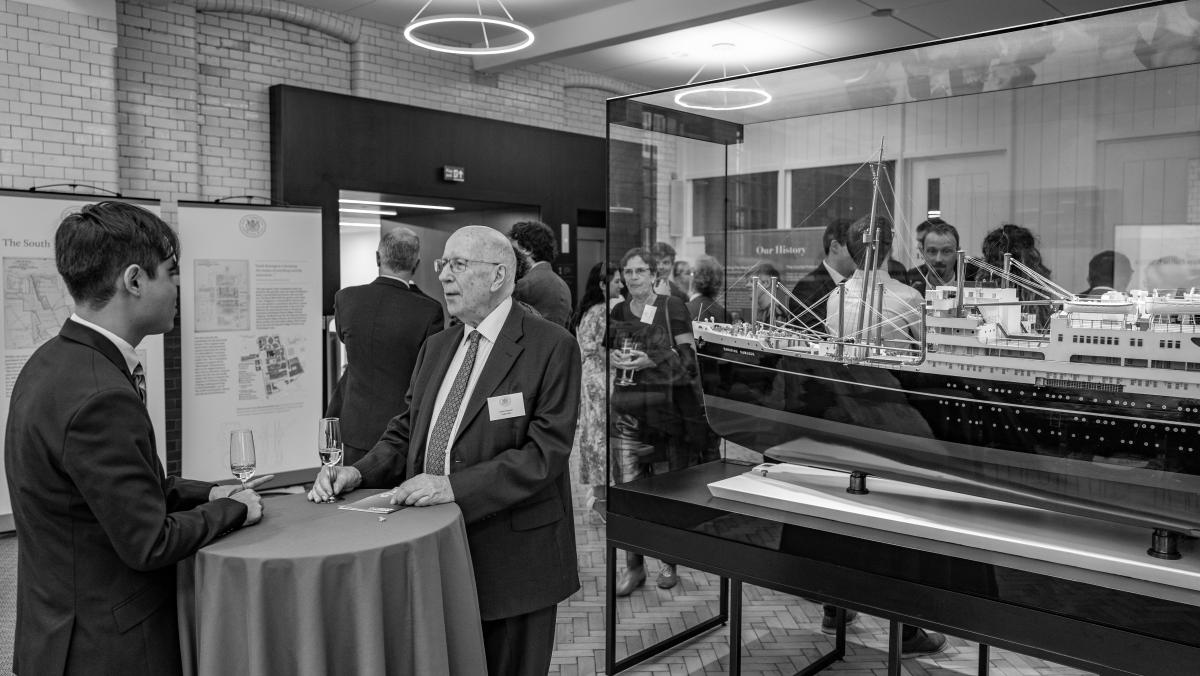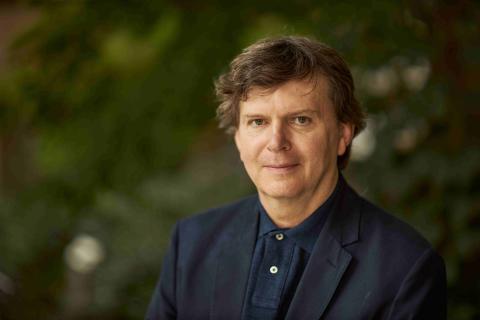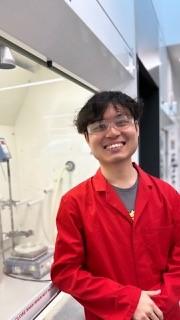The Royal Commission for the Exhibition of 1851 recently announced their 2024 Industrial Fellows. Among them is IOI DPhil student Ryan Teo.
Ryan’s project is on designing gut-friendly antibiotics to tackle antimicrobial resistance. Royal Commission Industrial Fellowships are awarded to graduates with the potential to make an outstanding contribution to industry, leading to a patent, product or process improvement and a postgraduate award. During the Fellowship, Ryan will be co-supervised by Prof Christopher Schofield, Professor of Chemistry at the University of Oxford, Prof Kevin Foster, Professor of Microbiology at the University of Oxford, and Dr Jim Dawson, Non-Executive Director at INEOS.

Ryan Teo and Dr Jim Dawson at the launch of the 2024 Royal Commission Industrial Fellowships.
Antibiotics are effective at killing bacteria causing infections. However, the human body is home to a dense and diverse community of bacterial species, forming our unique microbiome. Most of these species do not cause us harm, and many are beneficial. The gut microbiome plays a huge role in maintaining our health, including regulating the immune system, aiding digestion, and importantly prevents the invasion of harmful bacteria – a mechanism known as colonization resistance.
However, current antibiotics cannot tell the difference between harmful and beneficial bacteria, and so wipe out all parts of the microbiome along with the disease-causing pathogens. This can disrupt the normal balance in our gut, leaving us vulnerable to further infections and colonization by harmful bacteria.
Antibiotics save millions of lives every year, but they can also harm the diverse bacteria in our gut that we cannot live without. Ryan’s project takes a novel approach to drug development, and the industrial expertise from INEOS will help us translate this important research to a real-world solution.

Ryan’s research will focus on developing new antibiotics that target pathogens while sparing the gut microbiome. When testing new molecules, scientists are often looking for those most effective at killing a target bacterium, whereas Ryan will also be considering their ability to differentiate between target pathogens, and other species of bacteria that live harmlessly in our gut.
I'm excited to be working on a project that has such tangible real-world implications. This fellowship is a unique opportunity to learn from both academic and industry experts, and to develop a novel approach to tackle AMR.

Ryan hopes that developing a gut-friendly antibiotic will allow the activity of the gut microbiome to act in concert with the drug to treat infections more efficiently, and slow the development of antimicrobial resistance (AMR).
It has been almost 40 years since the last class of antibiotics was discovered. Research and development of antibiotics and the process of bringing a drug to the market is complex and expensive. By combining cutting-edge science with practical expertise from industry, we have the opportunity to make significant advances in the field of antimicrobial resistance.

